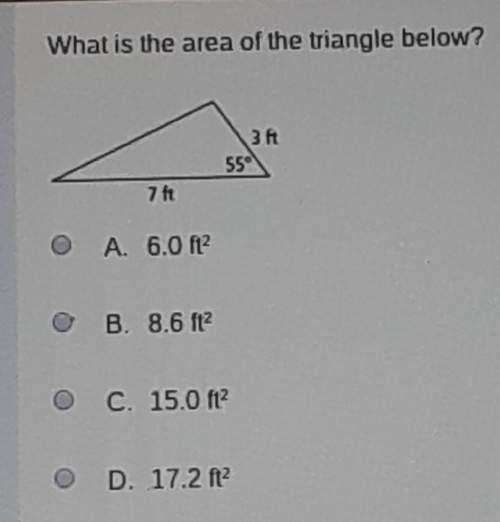Tell whether each equation has one solution, infinitely many solutions, or no solution.
...

Mathematics, 09.01.2020 19:31 miguelsanchez1456
Tell whether each equation has one solution, infinitely many solutions, or no solution.
6x + 8 = 6(x + 2)
10x = 15 + 5x
x + 11 = 8x + 11 - 7x

Answers: 2


Other questions on the subject: Mathematics

Mathematics, 21.06.2019 15:00, Broov
Asap the total attendance for all of a baseball league in 2012 was about 7.5×107 fans, while the attendance for the tornadoes in 2012 was about 1.5×106 fans. about how many times more was the attendance for the entire baseball league than the attendance for just the tornadoes? 50 times more 10 times more 2 times more 5 times more
Answers: 2

Mathematics, 21.06.2019 16:00, sebastianapolo5
Asalesperson earns $320 per week plus 8% of her weekly sales. the expression representing her earnings is 320 + 0.08x. which of the following describes the sales necessary for the salesperson to earn at least $1000 in the one week?
Answers: 2

Mathematics, 21.06.2019 18:00, ykpwincess
Kayla has a $500 budget for the school party. she paid $150 for the decorations. food will cost $5.50 per student. what inequality represents the number of students, s, that can attend the party?
Answers: 1

Mathematics, 21.06.2019 20:00, Kalle91106
Can someone factor this fully? my friend and i have two different answers and i would like to know if either of them is right. you in advance. a^2 - b^2 + 25 + 10a
Answers: 1
You know the right answer?
Questions in other subjects:

Mathematics, 27.06.2019 05:30




Mathematics, 27.06.2019 05:30





Biology, 27.06.2019 05:30




